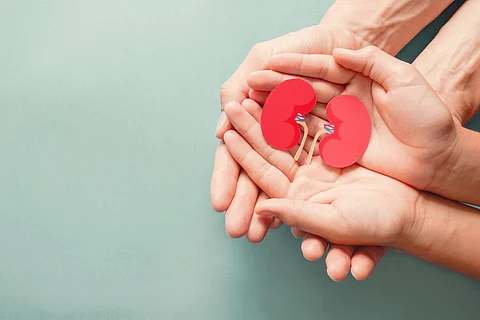
- NEWS
- the EDIT
- COMMENTARY
- BUSINESS
- LIFE
- SHOW
- ACTION
- GLOBAL GOALS
- SNAPS
- DYARYO TIRADA
- MORE

The Department of Health (DOH) Secretary Albert Domingo said on Sunday that PhilHealth has raised its benefits and improved services related to kidney care.
In an interview, Domingo said this move follows President Marcos' directive to ensure that Filipinos can afford proper treatment for kidney-related illnesses. "When we say chronic kidney disease, many Filipinos suffer and must undergo kidney transplants but are afraid to do so due to expenses," he said in Filipino.
According to PhilHealth’s 2024 data, there were around 5 million dialysis claims, translating to about 14,000 sessions per day nationwide. This means more than 5 million Filipinos relied on PhilHealth for hemodialysis.
PhilHealth currently covers P6,350 per dialysis session. Since most patients require around 12 sessions a month, the total monthly cost can exceed P70,000 without a kidney transplant.
With PhilHealth’s new package — which now includes medication — the cost drops to approximately P40,000 to P50,000 per month. It is a more affordable alternative to regular dialysis and also improves patients' quality of life.
For kidney transplants, the families of deceased donors can receive between P600,000 to P2 million in support. Living donors will be eligible for a P1 million coverage.
According to Domingo, both the kidney recipient and the donor will receive lifelong support for medications and laboratory tests.
However, organ donation remains a sensitive issue. “We want it done ethically, not in a commercial way. Selling body parts is illegal and linked to human trafficking,” he stressed in Filipino.
The Hospital Transplant Ethics Committee and the National Transplant Ethics Committee are designated authorities for screening and processing organ donations.
Domingo emphasized that before anyone can donate, there are strict protocols to follow. If the donor is not a relative, they must prove a close personal connection with the recipient.
“It’s ideal for the donor to be a family member. But if not, it’s still permitted—as long as they share an emotional bond,” he said.
He emphasized that all kinds of transplants contain risk, but it will be minimal if it is done correctly.
He also reminded the public to take preventive steps: “Lessen your intake of sweet and salty food,” he advised in Filipino.
